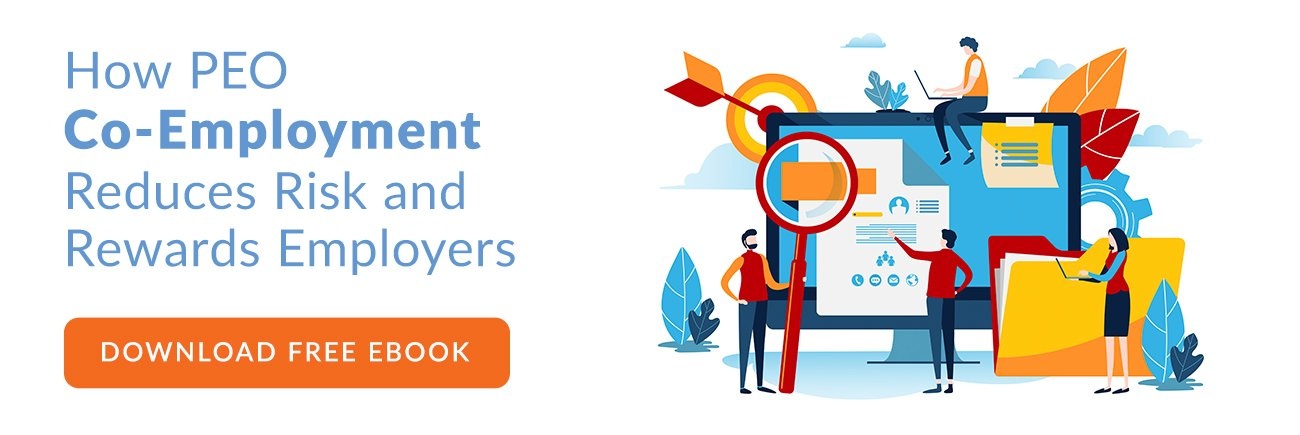Every small business must adequately manage risks. Whether that’s reducing overhead or increasing profits, risk management is crucial to keeping your business churning.
Risk management is also essential to a functioning HR department. It helps to keep your business safe from legal exposure and ensures compliance with all federal, state, and local labor laws.
Methods to Manage Risk
Managing risk is key to keeping your business out of legal and financial trouble. There are many ways you can reduce your risk, and the most important are discussed briefly below:
1. Risk Avoidance
Risk avoidance is the complete elimination of hazards and activities that can negatively affect your business. The idea here is to reduce company losses by removing the likelihood of a possible loss. An example of this is avoiding work in specific industries. Construction companies may not do any roofing work because the risk of injury to employees and company losses is much greater.
2. Risk Reduction
Risk reduction is similar to risk avoidance. While risk avoidance seeks to eliminate any risk, risk reduction seeks to minimize any potential threats. Say you run a parking lot with overnight parking. You hire a security company to monitor the lot overnight in an attempt to reduce the likelihood of a vehicle break-in or damage to your property.
3. Risk Sharing
Risk sharing is when a company shares risk with others in a similar setting. Some energy companies, for example, share risk by purchasing costly goods through a cooperative with other energy companies. Many smaller businesses pool their resources to purchase bulk goods. Doing this can not only help them lower costs because they’re buying more, but it also shares the risk of an order issue with several companies instead of just one.
4. Risk Retention
Risk-retention is planning for a loss. Some companies know that they will have equipment fail over time. Instead of paying for an insurance policy to cover the equipment, they instead choose to save additional money and replace the equipment when it fails. Yard service companies, for example, may decide to forego insurance policies on their lawn equipment. They instead service the equipment and, eventually, replace it with new equipment when the old equipment no longer meets their needs.
5. Outsource to a PEO
A Professional Employer Organization (PEO) is an HR outsourcing solution that can provide you with many HR services, including risk management. This is a hybrid solution that combines risk reduction with risk-sharing.
Outsourcing your risk management needs can save your company money. Instead of having to hire additional HR staff in-house, you can outsource risk management to experts.
How PEOs Reduce Risk
PEO risk management practices help your company reduce risks and the costs associated with those risks. Outsourcing your risk management needs to a PEO decreases your risks in several ways.
With a PEO, you can reduce your risk of compliance fines. Many small businesses unknowingly violate employment laws. While there is no ill intent in doing so, that doesn’t matter. Even innocent mistakes can lead to costly fines. For example, failing to pay overtime at the proper rate could lead to government fines and penalties.
Many companies also face employee lawsuits. Employees commonly sue their employer for missed paychecks. Payroll has to be perfect every time, or employees could sue your company and leave for a competitor. When you partner with a PEO, they handle your payroll, reducing your risk of employee lawsuits.
Workers’ compensation insurance is a budget-buster for many small businesses. The more injuries your employees suffer, the more your rates increase. A PEO can help you decrease your rates and the injuries your employees suffer by helping you develop a safety program.
Unemployment claims are another area where employers often get into trouble. These claims are complex and require lots of paperwork to verify. Many overworked HR employees don’t have the time to confirm if a claim is legitimate. Your PEO will defend you against fraudulent claims.
How PEOs Share Risk
Purchasing insurance is not the same as risk-sharing. Your company, the policyholder, is still responsible for any mistakes you make, even though your insurance company promises to provide some level of financial protection.
However, with a PEO, the risk truly is shared. PEOs use a co-employment agreement with you, so they become the employer of record for all of your employees. You still retain all decision-making authority for your business, but your PEO now shares liability and responsibility for your employees, thereby reducing your company’s sole risk.
A PEO can also help small businesses get better health insurance coverage. By spreading the risk out, a PEO can act like a larger company when negotiating rates with insurance providers, passing those savings on to you and your employees.
PEOs as a Risk Solution
Outsourcing your HR needs is a possible solution for your risk management. However, the only comprehensive option that provides your company with proper risk management practices is to partner with a PEO.



